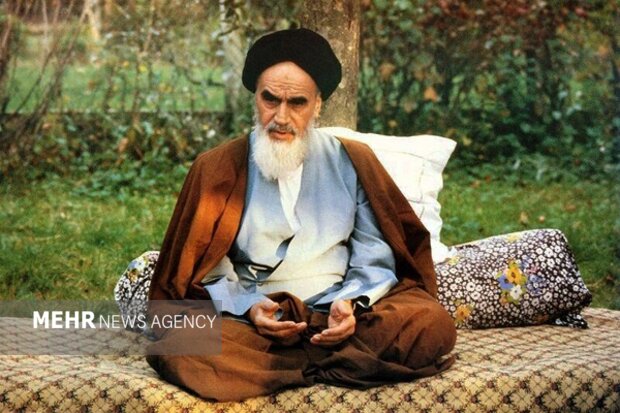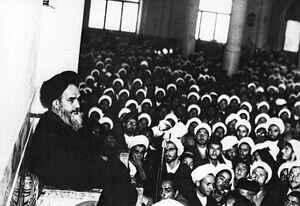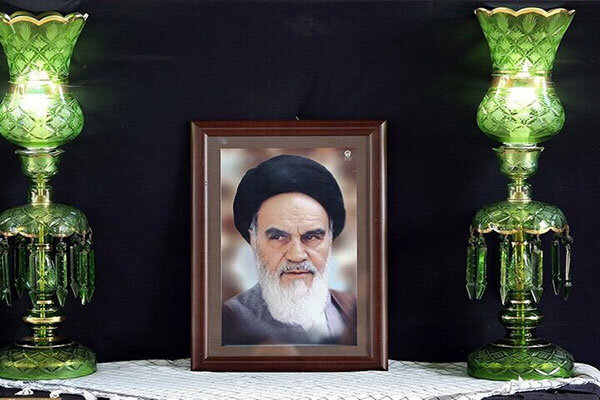On the 36th anniversary of the death of Imam Khomeini, the architect of Iranian Islamic Revolution in 1979, the Iranian state once again pays tribute to the memory of this great leader.
Every year on June 4th, the anniversary of the end of Imam Khomeini is commemorated in the Islamic Republic.
Khomeini, better known as Imam Khomeini, was the founder of the Islamic Republic and the leader of the 1979 Islamic Revolution, ending dictatorial rule.
The main ceremony will be held at Spirit US in southern Tehran, with Ayatollah, the leader of the Islamic Revolution, sai Ali Khamenei, and foreign officials attend.
Iranian lawmakers visited the spirit us of Imam Khomeini to reaffirm their commitment to the ideals of the Islamic Revolution and their legacy.
The visit included a welcome by Hassan Khomeini, the grandson of the Imam and the custodian of the Spirit US, ahead of the anniversary of the final mise of Khomeini.
At the ceremony, the speech highlighted the values of the Islamic Revolution, the role of the Imams in modern Iran, and the importance of the Kordad 15 uprising as an important event against the Pahlavi regime.
The event commemorated the sacrifices of the Islamic Revolution and its continued dedication to its principles.
Born on September 24, 1902, Imam Khomeini spent years in exile in Iraq, Turkey and France, leading the movement that overthrew Shah and Mohammad Reza Pallavi and founded the Islamic Republic.

He began studying religion at a young age and later taught Islamic studies.
He married in 1929 and had seven children. He has written many books on philosophy, theology, ethics and politics. Imam Khomeini’s 1979 revolution had an impact on many people around the world. He passed away on June 3, 1989 at the age of 86.
Following the 1979 referendum, where over 98% voted in favor, he laid the foundations of the New Republic and separated from monarchy and Western influences.
With his innovative ideas, Imam Khomeini led the path of the Islamic revolution and established a system based on Islam and general values.
He bravely resisted internal tyranny and external rule, and with his wise leadership he led the Iranian people to independence and freedom.
Imam Khomeini’s enduring ideals inspire justice and freedom around the world.
His teachings about independence and resistance to oppression resonate deeply in a world facing injustice and inequality.

Imam Khomeini emphasized moral values, social justice and Muslim unity. Iranians respect his life and teachings and encourage them to build a bright future for their country and the world.
The prominent figure was the ideal reformer who sought to establish an educated, noble citizen and a healthy society. However, his ideal intention was not for him to ignore the reality of political life.
Imam Khomeini focused on political power as a skilled means of achieving God’s ideals in a management position.
He believed in the inclusive nature of Islam, and argued that Islam does not need to mimic other ideologies.
For him, politics is the best form of religious commitment, and the formation of an Islamic state is the ultimate goal. However, the other Uramas were barely political.
He was an anti-colonial person, so he considered colonialism a major problem for Muslims.
He began his struggle against Western colonial attitudes during the Pallavi period.
He was the first scholar to directly challenge the Pahlavi regime and secular policies, which primarily aimed at eliminating Islam as a sociopolitical power.
Furthermore, another goal was the elimination of Urama’s religious and political leadership from Iran. There, religion is an inevitable part of people’s lives.
Thus, Pahlavi Polity redefines itself within the context of the modern world order.
Imam Khomeini advances QUDS day to highlight the intransitable rights of Palestinians

Imam Khomeini urged all Muslims around the world to demonstrate solidarity with the Palestinians and defend their rights.
International QUDS Day is marked annually by large demonstrations in Iran and other countries supporting Palestine.
This annual observance serves as a powerful symbol of resistance to occupation of Palestinian territory and as a call for the liberation of Al-Kud.
Beyond its religious importance, the opportunity has become a platform for expressing broader anti-imperialist sentiment and condemning what is perceived as Western prejudices in the Israeli-Palestinian conflict.
Reported by Tohid Mahmoudpour

